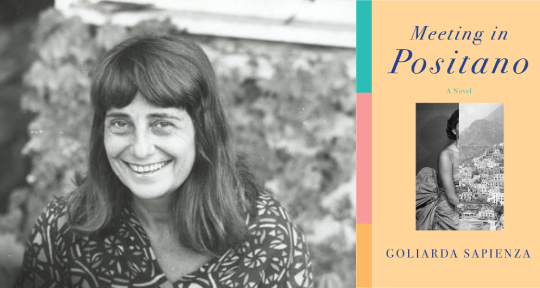Meeting in Positano by Goliarda Sapienza, translated from the Italian by Brian Robert Moore, Other Press, 2021
Meeting in Positano was the very last novel that Goliarda Sapienza wrote before she fell to her death in 1996 at her home in Gaeta. Frustrated by many failed attempts to publish her writing throughout her life, Sapienza’s ultimate book was fraught with the existentialist neuroses of modernism as she searched for ways through and out of its sprawling, vicious embrace. Between its fragile subjectivity and ambivalent subject, Meeting in Positano traces the psychology of its protagonist, caught between film production in the Italian capital and the pacifying lure of the titular out-of-the-way town—wherein a fading daughter of the old aristocracy has also come to shed her qualms with the pace, pressure, and emptiness of materialism, money, and men.
The daughter of Sicilian socialists—who, among many plaudits, published Antonio Gramsci—Sapienza lived along that drift in which sensitive artists become hardened intellectuals before succumbing to outright revolution. Despite the environment of ardent intellectualism, the wayward, postwar Sapienza children were afloat in an Italy which resembled a rudderless raft in the Mediterranean—a country that had gone slack in its attempted confrontation of the country’s unresolved tendencies to fascism. In its quest for spiritual emigration, the literary work of Goliarda Sapienza details the inner lives of her fellow Italians, challenged by the trials of collective renewal following years of unspeakable despair during and after the years of World War II—even if the traces of those years are only seen, or merely felt, after the fact.


